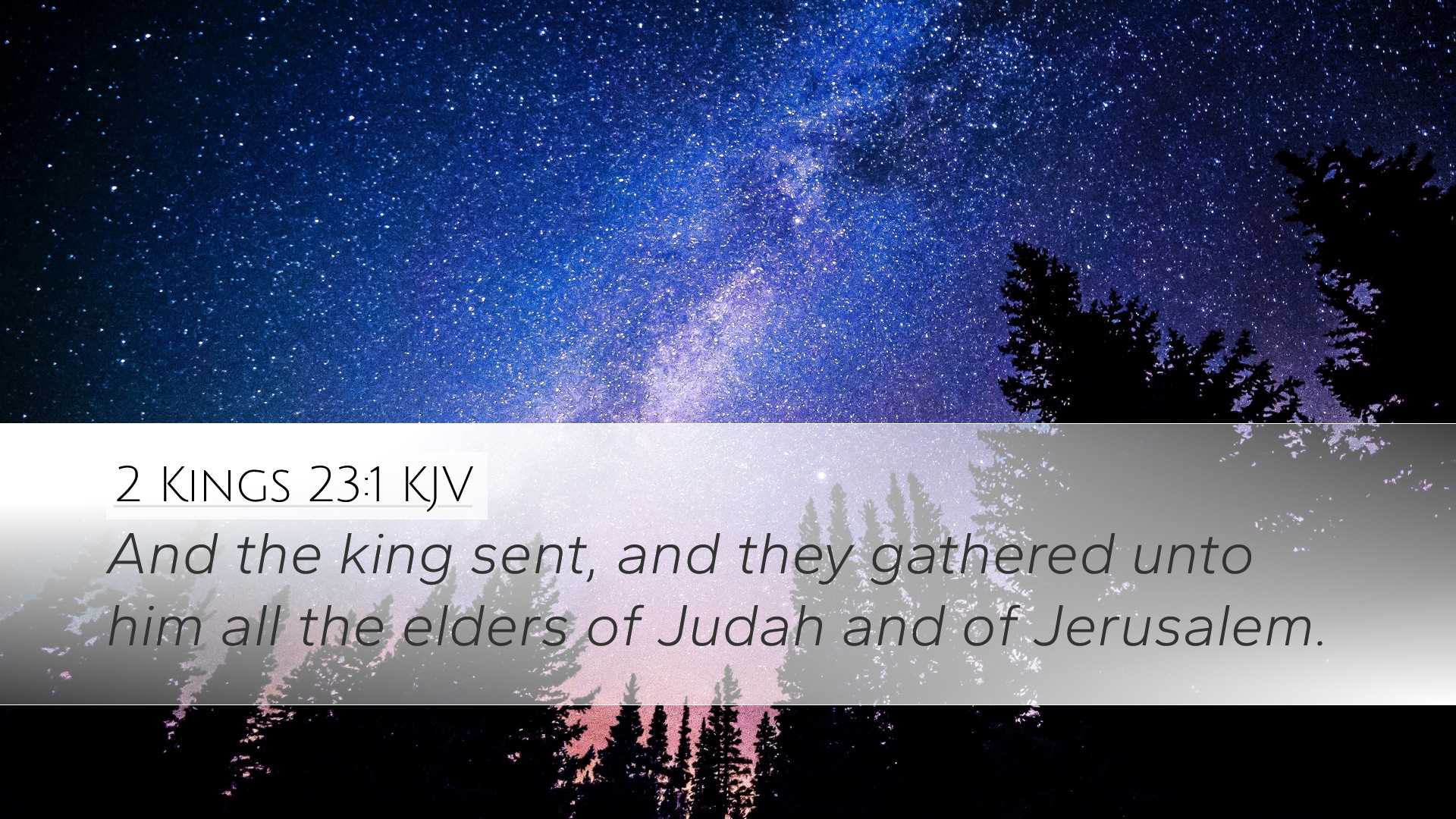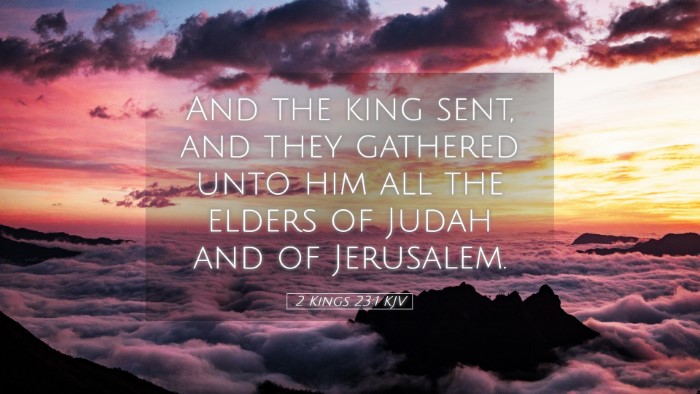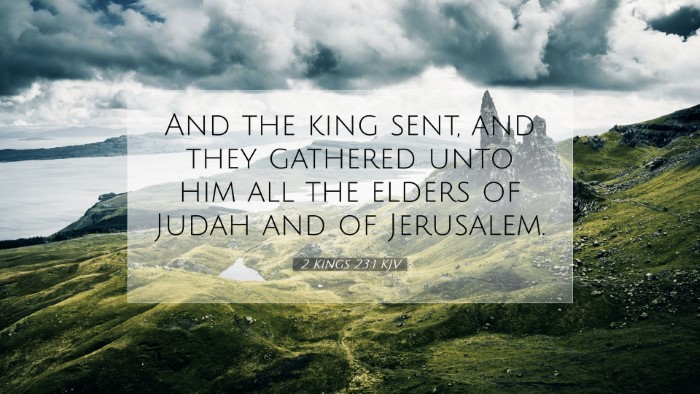Commentary on 2 Kings 23:1
Introduction
The verse 2 Kings 23:1 stands as a critical moment in the narrative of Israel’s history, encapsulating the profound reforms initiated by King Josiah. This commentary draws insights from the writings of Matthew Henry, Albert Barnes, and Adam Clarke, providing a comprehensive understanding relevant for pastors, students, theologians, and Bible scholars.
Contextual Background
The historical context of 2 Kings 23 is set against the backdrop of Judah's spiritual decline following generations of idolatry and rebellion against God. King Josiah, who ascended the throne at a young age, initiated significant reforms upon discovering the Book of the Law, which fundamentally reshaped the religious landscape of Judah.
Verse Analysis
Text of 2 Kings 23:1: “And the king sent, and they gathered unto him all the elders of Judah and of Jerusalem.”
Gathering of Leadership
According to Matthew Henry, the act of gathering the elders signifies a purposeful collective engagement in the king’s reforms. Josiah’s initiative shows his desire for collective commitment to the covenant and the restoration of true worship. This underscores the importance of leadership in spiritual matters.
Albert Barnes emphasizes that the gathering of the elders was not just a formal assembly but a call to accountability. This act represents Josiah's attempt to unify the leadership of Judah under the principles of the Law. The involvement of elders indicates a recognition of their authority and responsibility in guiding the nation back to God.
The Role of Josiah
King Josiah emerges as a transformative figure in this narrative. Adam Clarke locates Josiah's reformative zeal in his personal devotion to God, which inspired him to seek the Lord's favor actively. The young king recognized his position and the weight of responsibility he bore, focusing on rectifying previous generations' failures.
Spiritual Implications
The implications of this verse extend beyond mere historical recounting; they resonate with contemporary issues in church and society. Matthew Henry remarks that reforms in leadership are necessary for spiritual revitalization. The elders' gathering signifies that lasting change requires collaboration among leaders committed to God’s law.
Albert Barnes suggests that this gathering serves as a reminder of the collective nature of faith. The church today must engage its leaders and congregation similarly to cultivate a genuine spirit of repentance and revival.
Importance of Unity in Leadership
Unity in leadership is paramount, as stated by Adam Clarke. The elders' assembly reflects the need for a united front in addressing moral and spiritual decay. Modern churches can draw from Josiah's example by encouraging congregational unity for effective ministry.
Theological Reflection
The gathering depicted in 2 Kings 23:1 serves as a powerful theological reflection on the restoration of covenantal fidelity. Matthew Henry posits that true worship demands communal engagement with God's Word, highlighting the importance of turning to Scripture for guidance and conviction.
Albert Barnes extends this thought, emphasizing that Scripture should shape the practices and beliefs of God’s people. The discovery of the Book of the Law catalyzed the needed reforms, showcasing the transformative power of God’s Word in a community.
Application for Today
The principles derived from this passage challenge contemporary faith communities to assess their adherence to Scripture. Adam Clarke encourages leaders and congregations to actively seek God’s direction through collective prayer and study of the Word, mirroring the actions of King Josiah.
Furthermore, congregations must gather to confront societal and spiritual deficiencies in today’s world, much like Josiah sought to eradicate idolatry from Judah. This requires humility and a desire to submit to God’s leading.
Conclusion
In summary, 2 Kings 23:1 serves as a pivotal text highlighting the necessity of leadership and communal accountability in the context of spiritual reform. The insights offered by Matthew Henry, Albert Barnes, and Adam Clarke illuminate the verse's rich implications for both the historical Judah and contemporary church life. Josiah’s commitment to gather the elders illustrates the critical role of collaborative leadership in returning a nation to fidelity to God's covenant. As church leaders and scholars reflect on this passage, they should recognize the call for unity and the transformative power of engaging with God’s Word as central to spiritual renewal.


